COP 28, the largest climate summit in history, has drawn to a close. Marnie Chesterton examines some of the main stories to emerge from this lengthy conference.
The way we look after our oceans, measures needed to ensure food security and an agreement to transition away from fossil fuel dependence were some of the big themes of the summit.
The BBC’s climate reporter Georgina Rannard takes us through the final agreement.
We hear from Glada Lahn, senior research fellow at international affairs think-tank Chatham House, who explains how we might one day wean ourselves off so-called ‘brown energy’.
Farming is also a source of greenhouse gases. Growing, processing and packaging food account for a third of all greenhouse gas emissions. How we feed the 8.1 billion of us on the planet continues to be a contentious issue. Casper Chater from Royal Botanic Gardens Kew explains what we can do to adapt our existing crops to cope with more frequent flood and drought events.
Oceans are warming, losing oxygen and acidifying. Sea levels are rising. We speak to Ko Barrett, a senior climate advisor at the US's National Oceanic and Atmospheric Administration, about the role oceans have played so far in helping us mitigate the worse effects of climate change. And we meet Mervina Paueli, a 25-year-old Tuvaluan negotiator, whose small archipelago in the South Pacific is on the frontline.
Presenter: Marnie Chesterton Producers: Louise Orchard, Hannah Robins and Harrison Lewis Editor: Richard Collings Production Co-ordinator: Jana Bennett-Holesworth
BBC Inside Science is produced in collaboration with the Open University.
More Episodes
African genomes sequenced; Space weather; sports head injuries
 2019-10-31
2019-10-31
Organic farming emissions; Staring at seagulls; Salt and dementia
 2019-10-24
2019-10-24
Ebola model, Partula snails, Malaria origin
 2019-10-17
2019-10-17
Extinction Rebellion, UK net zero emissions and climate change; Nobel Prizes
 2019-10-10
2019-10-10
HIV protective gene paper retraction, Imaging ancient Herculaneum scrolls, Bill Bryson's The Body
 2019-10-03
2019-10-03
Oceans, ice and climate change; Neolithic baby bottles; Caroline Criado-Perez wins RS Book Prize
 2019-09-26
2019-09-26
MOSAiC Arctic super-expedition, Likely extinction of the Bahama nuthatch, Tim Smedley's book on air pollution
 2019-09-19
2019-09-19
Model embryos from stem cells, Paul Steinhardt's book on impossible crystals, Mother Thames
 2019-09-12
2019-09-12
Inventing GPS, Carbon nanotube computer, Steven Strogatz and Monty Lyman discuss calculus and skin
 2019-09-05
2019-09-05
Amazon fires, Royal Society Book Prize shortlist announced, John Gribben on quantum physics
 2019-08-29
2019-08-29
UK's black squirrels' genetic heritage; nuclear fusion in the UK and the Royal Society's science book prize
 2019-08-22
2019-08-22
UK power cut, Huge dinosaur find in Wyoming, Micro-plastics in Arctic snow
 2019-08-15
2019-08-15
Making the UK's dams safe, AI spots fake smiles, How many trees should we be planting?
 2019-08-08
2019-08-08
Lovelock at 100; Hydrothermal vents and antibiotic resistance in the environment
 2019-08-01
2019-08-01
False positives in genetic test kits, Impact of fishing on ocean sharks, Sex-change fish
 2019-07-25
2019-07-25
Turing on the new £50 note, Moon landing on the radio, 25 years since Shoemaker-Levy comet
 2019-07-18
2019-07-18
Earliest modern human skull, Analysing moon rocks, Viruses lurking in our genomes
 2019-07-11
2019-07-11
X-Rays on Mercury, Monkey Tools, Music of Molecules, AI Drivers
 2019-07-04
2019-07-04
Global Food Security, Reactive Use-By Labels, Origins of the Potato
 2019-06-27
2019-06-27
Rinderpest destruction, Noise and birdsong, Science as entertainment
 2019-06-20
2019-06-20
Create your
podcast in
minutes
- Full-featured podcast site
- Unlimited storage and bandwidth
- Comprehensive podcast stats
- Distribute to Apple Podcasts, Spotify, and more
- Make money with your podcast
It is Free
You may also like
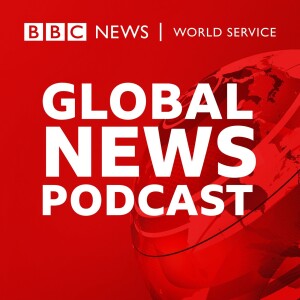
Global News Podcast

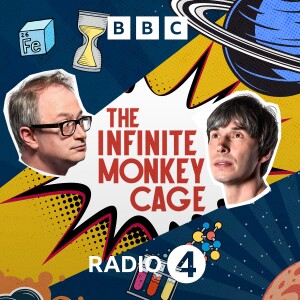
The Infinite Monkey Cage


Friday Night Comedy from BBC Radio 4

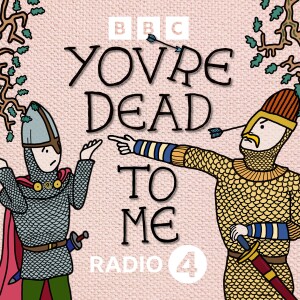
You’re Dead to Me

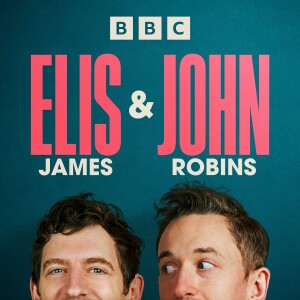
Elis James and John Robins

- Privacy Policy
- Cookie Policy
- Terms of Use
- Consent Preferences
- Copyright © 2015-2024 Podbean.com

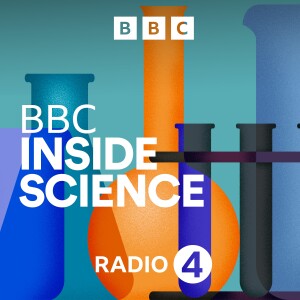

 iOS
iOS Android
Android